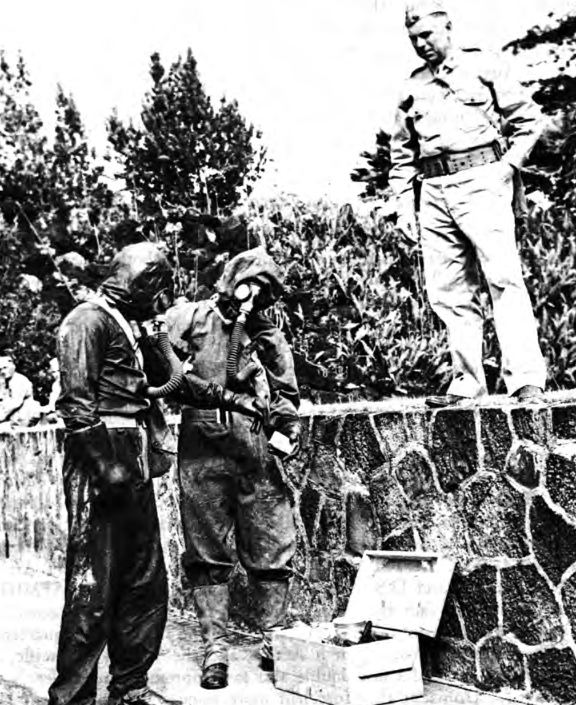Encyclopedia Dubuque
"Encyclopedia Dubuque is the online authority for all things Dubuque, written by the people who know the city best.”
Marshall Cohen—researcher and producer, CNN
Affiliated with the Local History Network of the State Historical Society of Iowa, and the Iowa Museum Association.
UNMACHT, George F.
UNMACHT, George F. (Dubuque, IA, Sept. 10, 1887—Hawaii, Jan. 10, 1954). In 1939 Major Unmacht, chief of the procurement division of the chemical warfare service, spoke to more than five hundred members of the National Association of Manufacturers in Chicago. He announced that field representatives of the military had found more than 10,000 of over 20,000 plants surveyed in the United States to be of value for producing the needs of the army and navy. Among the factors considered essential were safe location, transportation, costs, and production efficiency. It was business' job to keep the nation's industrial front strong. (1)
Colonel Unmacht, a career military officer, invented a tank-mounted flame-thower for the armed forces.
While stationed in Hawaii as the Territorial Coordinator for Civilian Gas Defense, he was given the task of providing a gas mask for every resident of the islands. Adults were soon supplied, but an estimated 5,000 young children were in need of protection. Afraid of regulation gas masks, children needed something to protect them from the effects of an attack using gas during WORLD WAR II. Unmacht remedied the situation by inventing BUNNY GAS MASKS.
In Hawaii, Unmacht began a series of gas officer and gas Non-Commissioned Officers (NCO) courses for various elements of the department and combat organizations. While the first information instruction had been given to a group of air wardens only a few days after the attack on Pearl Harbor, the first course, for 278 UGO's, was given on August 17-18, 1942 in the Fort Shafter gymnasium. Two more advanced courses were given in September and October. Training for the year was brought to a conclusion during three days in December when the departmental Chemical Warfare Staff (CWS) staged a chemical warfare maneuver with 1,295 participants. (2)
---
Source:
1. "Major Unmacht NAM Speaker," Telegraph-Herald, October 13, 1939, p. 17
2. Kleber, Brooks E. and Dale Birdsell, The United States Army in World War II: The Technical Services--Chemical Warfare Service: Chemicals in Combat, Washington, D. C.: Center of Military History, p. 244



